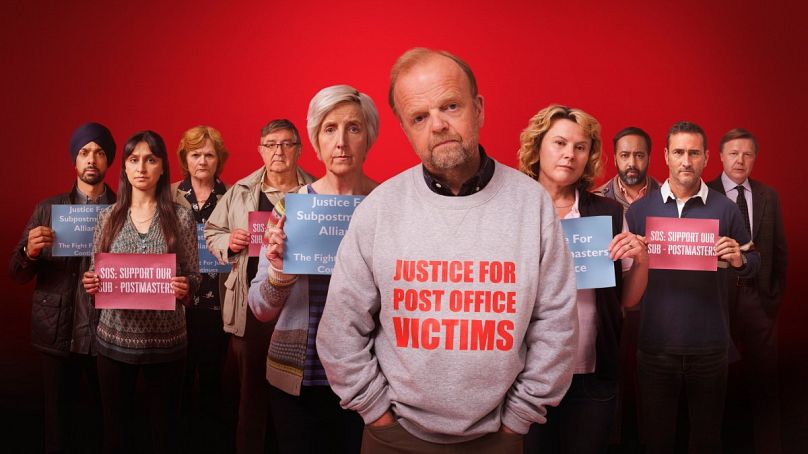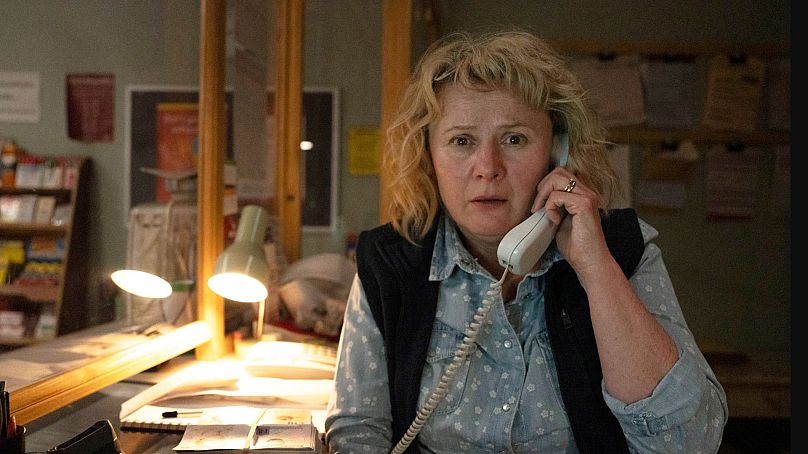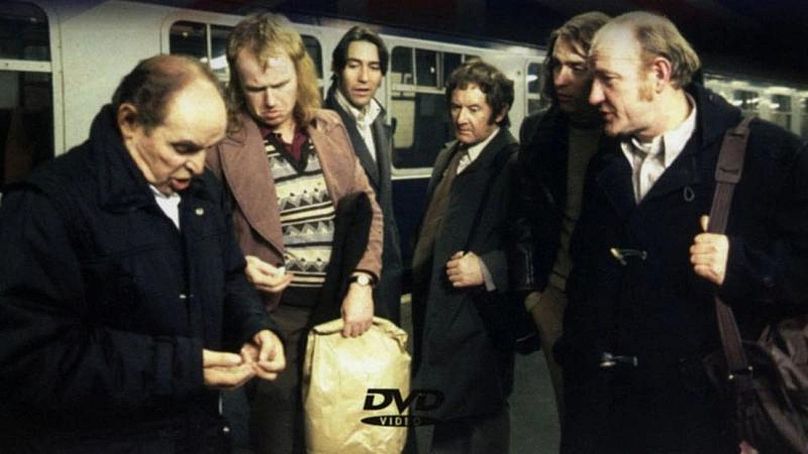A four-part TV series, focusing on a UK Post Office scandal, has demonstrated the enormous power of docudrama to raise awareness. Within a week the government changed its policy as the public outcry grew over true-life cases involving hundreds of people who faced erroneous fraud claims.
Between 2000 and 2014, more than 900 UK postal workers found themselves ensnared in a dark web of false accusations, unjustly branded with theft, fraud, and false accounting.
 ADVERTISEMENT
ADVERTISEMENT
 ADVERTISEMENT
ADVERTISEMENT
The consequences were dire - some faced imprisonment, others plunged into financial debt and grappled with bankruptcy, and tragically, several took their own lives.
What later came to light was that the real culprit was a faulty computer accounting system called Horizon, supplied by the Japanese technology firm Fujitsu, that was installed in local Post Office branches in 1999.
The ordeal has since been labeled as "one of the greatest miscarriages of justice in our nation’s history."
Despite a two-year inquiry, previous extensive news coverage and years of campaigning, it wasn't until this year that the horrors of the scandal rose to the status of a national outrage.
While the moment of reckoning was a long time in the making, it was turbocharged by a four-part ITV television docudrama that aired on 1 January.
The series titled, Mr Bates vs The Post Office, not only captivated the public's attention but also served as a catalyst for government action, prompting lawmakers to respond swiftly in the face of public outcry.
Bringing the Post Office scandal to the small screen
Written by the Golden-globe nominated Gwyneth Hughes and directed by Broadchurch's James Strong, the semi-fictionalised series depicts the relentless pursuit of justice led by branch manager, Alan Bates, spanning nearly two decades.
As a former sub-postmaster, Bates (brilliantly portrayed on-screen by Toby Jones) played a pivotal role in exposing the scandal and establishing the Justice for Subpostmasters Alliance (JFSA) in 2009.
The first episode unfolds not too dissimilar to that of a Black Mirror. We're shown the distressing challenges faced by sub-postmasters across various regions of the UK, played by a brilliant cast of recognisable faces, from Adam James, Shaun Dooley to Julie Hesmondhalgh and Alex Jennings.
As the workers struggle with the discrepancies in the Horizon computer system, they fall into the corporate hands of Post Office, which rather than delving into an investigation of the root causes behind these problems, opts to point the finger of blame back at the sub-postmasters.
Particularly noteworthy is Monica Dolan's moving portrayal of Jo Hamilton, a shopkeeper and sub-postmaster, who is beloved in her quaint Hampshire village. In one harrowing scene, while on the phone with the Horizon helpline, she watches the discrepancy she reported double before her eyes. She's loses £4000 at the click of a button. And as the show emphasises, she is held entirely liable for this loss according to the terms of her Post Office contract.
It's a tough and gut-wrenching watch. The series manages to powerfully convey the mental toll on the victims and the complexities of the court system, extensive administrative processes, and the uncertainties of power. You feel the distress of each character as they grapple with the realisation that the numbers simply do not add up.
But, the viewing experience isn't merely stress-inducing; it also elicits a profound sense of anger. You witness the atrocious skulduggery of Post Office, that opted to gaslight victims by falsely framing their complaints as isolated cases, and sending their lives into downward spirals.
And while condensing over 20 years of a complex affair into a four-hour drama is no small feat, the series succeeds in delivering engaging and accessible television.
A catalyst for change
Mr Bates vs The Post Office exceeded ITV's expectations. The show became the broadcast channel's most-watched new drama in more than a decade, outshining the launch of Downton Abbey in 2010, and achieved an average viewership of 9.8 million per episode.
And the drama's impact surpassed mere viewership; it galvanised action.
Following the show's release, more than 1 million people signed an online petition calling for former Post Office chief executive Paula Vennells (portrayed in the series by Lia Williams) to lose her Commander of the Order of the British Empire title she received in 2018. She has since said she will relinquish the honour.
Furthermore, UK Prime Minister Rishi Sunak has since vowed to introduce unprecedented legislation to "swiftly exonerate and compensate victims".
“This is one of the greatest miscarriages of justice in our nation’s history," he announced.
The power of drama
The response from Mr Bates vs The Post Office is proof of the extraordinary power of docudrama in connecting with audiences and instigating meaningful change.
As the show's writer, Gwyneth Hughes, told The Guardian, drama is "for reaching out across the stage or through the screen, grabbing you by the throat and saying: care about me. And when it works, it’s incredibly powerful. In this case, it’s been put to the service of this terrible event in our country’s history. If you want to really get people’s attention, tell them a story. And in this case, a true story.”
Mr Bates vs The Post Office now joins the ranks of past docudramas which have captured public attention and pressured politicians to act.
A notable precedent is politician-writer Chris Mullin and producer Ian McBridge's Who Bombed Birmingham?, a 1990 drama which revisited the arrest of the Birmingham Six, who, in 1975, received life sentences for alleged involvement in IRA pub bombings. The docudrama meticulously detailed both the flaws in the forensic evidence against the men, and the extensive physical and psychological abuse to which they had been subjected. A year later after its release, as a result of heightened visibility, all six convictions were overturned.
Similarly, Ken Loach's 1966 television play Cathy Come Home, heightened awareness about homelessness and the housing crisis, and led to discussions in the House of Commons and the establishment of the homeless charity Shelter.
While the Post Office scandal is still ongoing and hundreds of affected people are still yet to receive their due compensation,Mr Bates vs The Post Office has undeniably sped up the course of justice.
As Mr Bates director James Strong remarked on BBC Radio Bristol: "It is really important that drama shows these kinds of stories, it is really important that we dramatise them."
"The power is there, so we have to do more."














